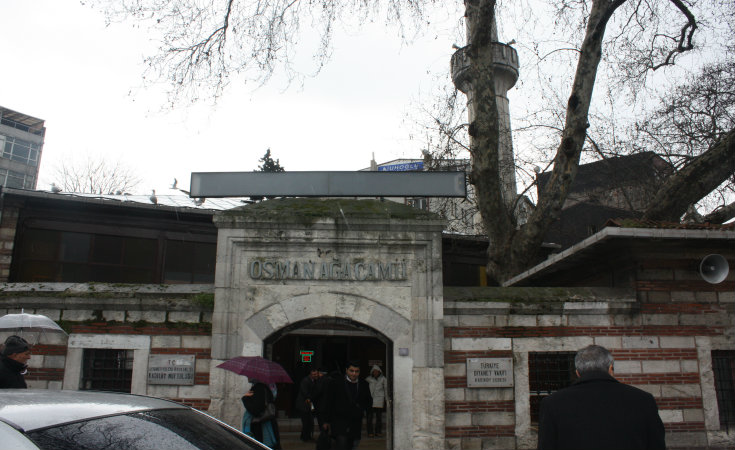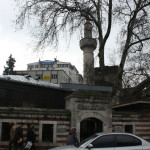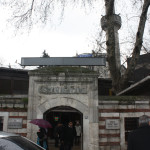Osmanağa Camii (Osmanaga Mosque)
The Osmanağa Mosque, located in Kadıköy, was commissioned by Osmanağa in 1612 during the reign of Sultan Ahmet I. The mosque was built where a mescit - which had gradually fallen into disrepair - once stood.

Loading ...
Address
Osmanağa Mah. Söğütlüçeşme Cad. No:36, Kadıköy
Visiting Hours
Daily, except prayer times.
Muslims pray five times each day. The precise timing of prayers often vary by a few minutes each day, therefore throughout a year there is a wide range of prayer times. The reason is that Islamic prayer times were traditionally set according to the movement of the sun.
Actually Islamic prayers are fixed at the same "time" period each day -- before dawn, noon, afternoon, sunset, and evening. Because of the rotation of the earth, the latitudes of the earth’s locations, daylight savings time, etc. -- the "times" (according to the clock) for these prayers change depending on time of day and location.
The Osmanağa Mosque, located in Kadıköy, was commissioned by Osmanağa in 1612 during the reign of Sultan Ahmet I. The mosque was built where a mescit – which had gradually fallen into disrepair – once stood.
Built on a rectangular plan, the mosque was constructed of stone and brick. The mosque is supported by wooden columns and on its left and right faces are forty windows. With one, one-tiered minaret, the mosque also has an historical sycamore tree in its courtyard which is said to have been planted on March 14th, 1879.
Mosque is a place of worship for Muslims. It comes from the Arabic word 'masjid' which literally means "a place for prostration". Mosques are also places where Muslims come together for different purposes such as education, social gatherings, public meetings, exhibitions, lectures etc. Although there is no specific requirement for mosques in terms of their architecture, one can see some common features inside and outside of many mosques such as minarets, domes, ablution areas, prayer niche (mihrab), pulpit (minbar) and so on.
Muslims are obliged to perform the ritual worship 5 times a day. They are not required to attend a mosque for each of these prayers however in order to interact with the community they are encouraged to pray in congregation. Friday noon is the only time in a week when Muslims must definitely join the congregational prayer in a mosque after which they can continue their work, education or other commitments.
Azan or the call for prayer is a vocal announcement that one can hear from minarets 5 times a day. The call to prayer is made live -even early in the morning- by a person called 'muazzin'. The muazzins are usually chosen from people with loud and beautiful voices and trained over years to make this announcement beautifully and invite people to worship.

























